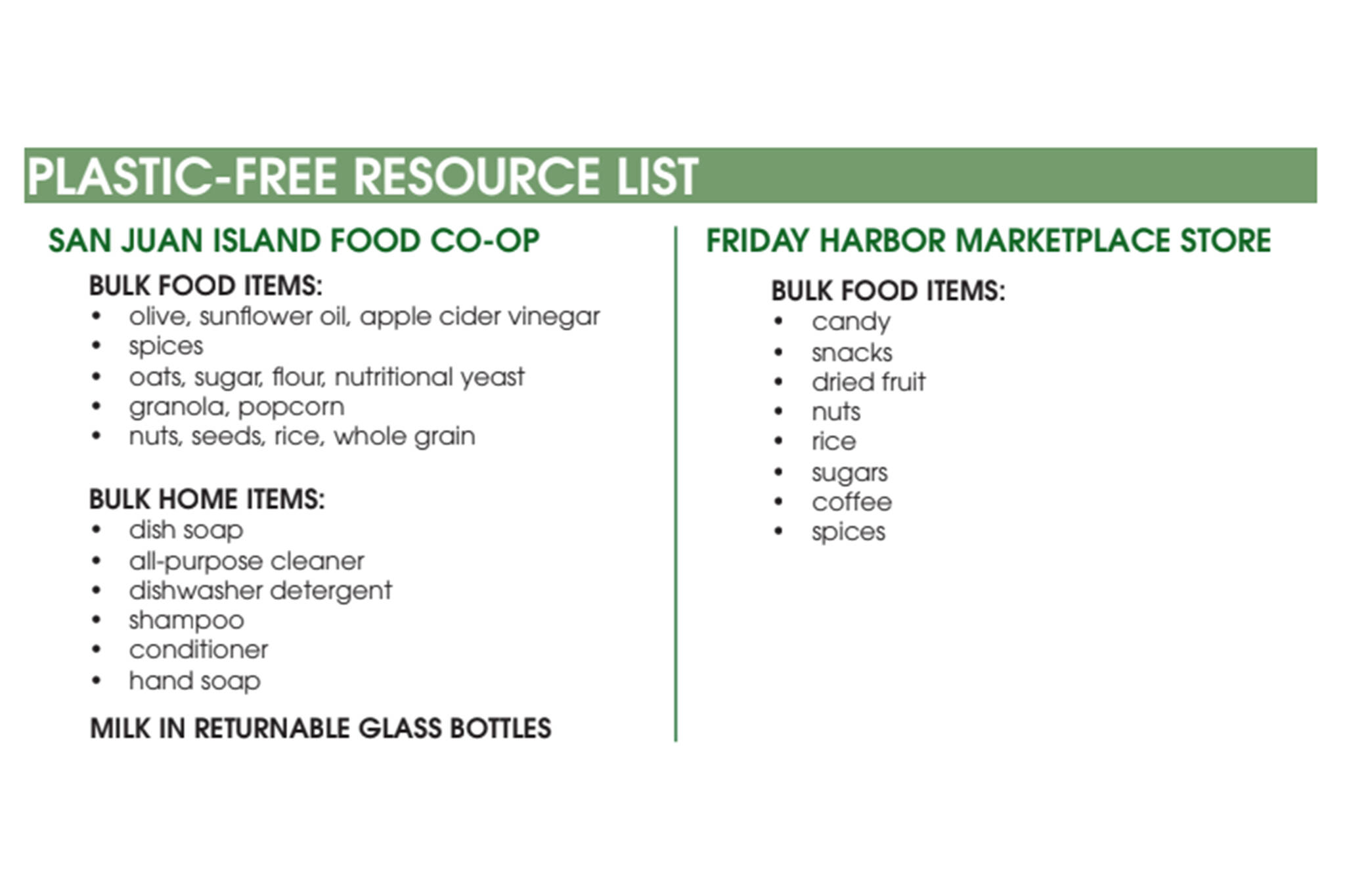Submitte by the Transition Waste Reduction Guild.
San Juan Islanders can take steps in their daily life to minimize plastic use and waste. With a curious, can-do mindset and a little know-how, you can live more sustainably, supporting the health and well-being of all in this community and beyond.
FARMERS MARKET
Besides the obvious benefits of buying food from local farmers, most fruits and vegetables sold at the farmers market are not put in plastic. If items are in a plastic bag, most farmers are happy to make a switch for you by placing the items in your own bag and in turn saving themselves a bag too!
FARM SHOPS
When you stop in at a local farm shop, there is even more opportunity to walk away with incredible produce and no plastic bags. Again, it’s also a wonderful chance to talk to and get to know your local farmers.
BRING YOUR OWN TO-GO ITEMS
Incredible strides had been made in ditching the mindset and habit of using to-go coffee cups, plastic straws and take-out containers. Then, COVID hit and concerns about transmission reversed this progress. Let’s get back to bringing our own containers!
MAKE BETTER CHOICES AT THE GROCERY STORE
As Americans, we’re very used to convenience and the idea that we can and should buy whatever we want. Companies vying for our money really want to keep it that way. On the other hand, the power we have as consumers can be used for good – by making good choices. Money talks; our demand and purchasing decisions drive what goes on the shelves.
Let’s consider the packaging material as we are deciding whether or not to buy a particular item.
Here are some examples of conscientious choices:
• Get to know your companies: Many companies are taking the health of their consumers and the environment seriously and are using compostable or 100% recyclable packaging.
• Choose no packaging as much as possible: buying in bulk with reusable jars and bags
• Choose glass instead of plastic: glass is 100% recyclable while only #1 and #2 plastics can be recycled
KNOW YOUR RECYCLING AND TAKE PROPER CARE
If you feel dubious whenever you place items into the recycle bin, you’re not alone and you have good reason. Recycling is a very imperfect and troubled business. While we feel better placing items in the recycle bin rather than the trash can, most recycling ends up there anyway.
Here are the top reasons why:
• Food is left on the packaging contaminating the contents and rendering them unusable
• Items that are not recyclable are placed in the bin
• Glass, plastic, cardboard and aluminum are co-mingled making cross contamination high. When items such as glass break and spread shards onto paper or other items it all be-comes unusable
What to do:
• Make sure and food is cleaned out of glass jars and plastic containers
• Only put recyclable items in the recycle bin
• Choose to lessen reliance on the recycle bin by choosing to go plastic free as much as possible, reusing anything that can be used again and reducing our need for purchasing items in non-recyclable packaging
COMPOSTING FOOD
Federico Farm is offering a drop-off food composting program that uses fermentation to break down food matter. Composting bins can be purchased for a one-time charge of $20 and $5 for a bag of inoculant that assists in the breakdown of food. Once your bin is full bring it to Federico Farm and dump it into the compost bins. Repeat.



